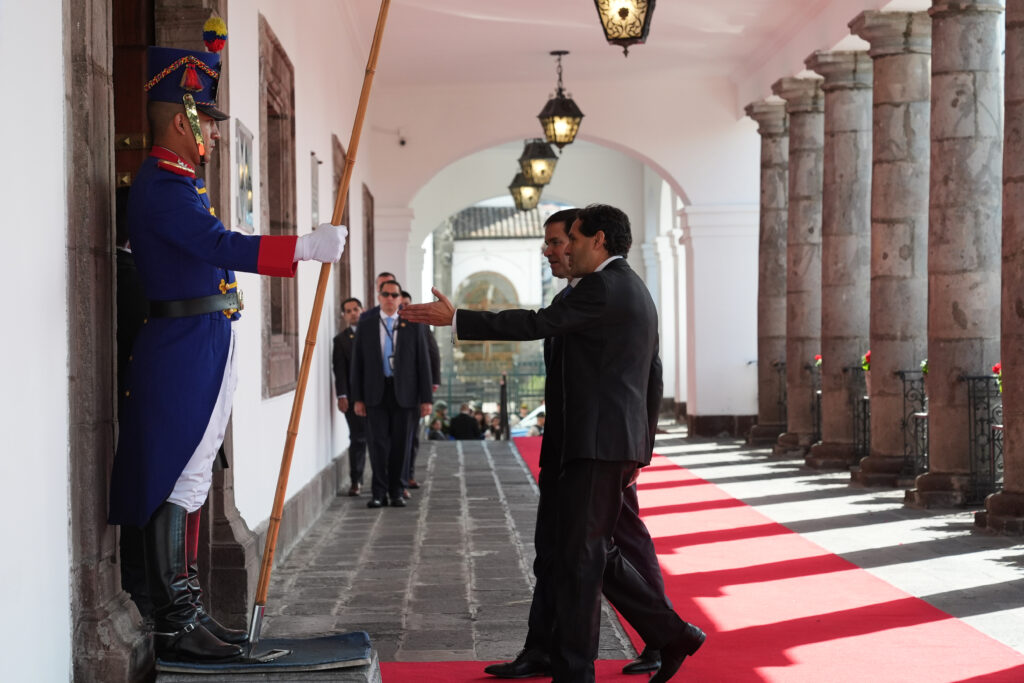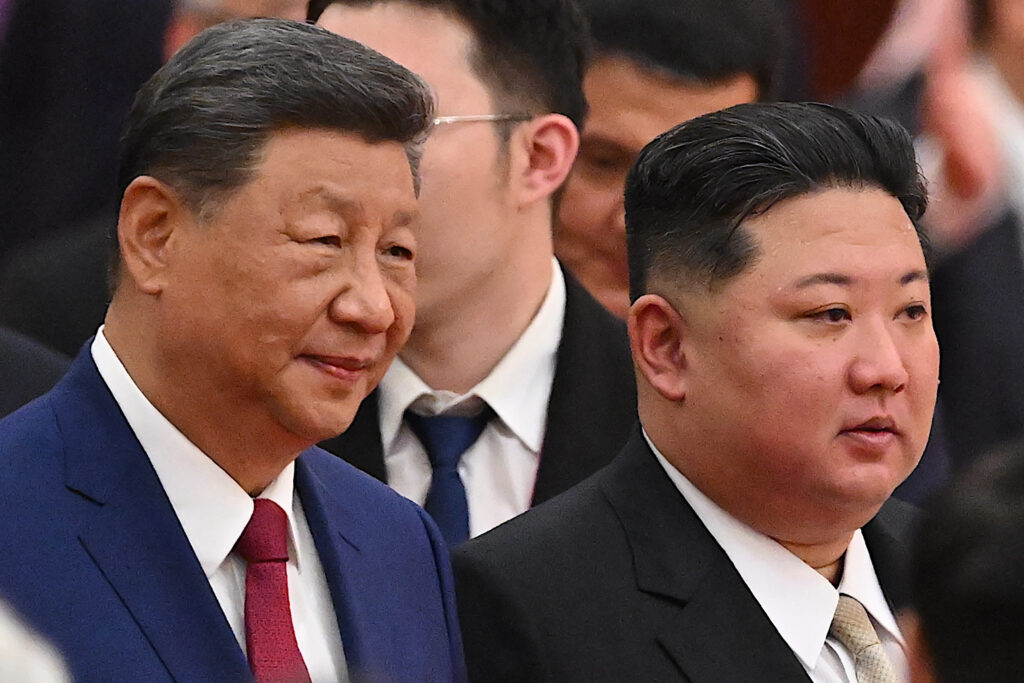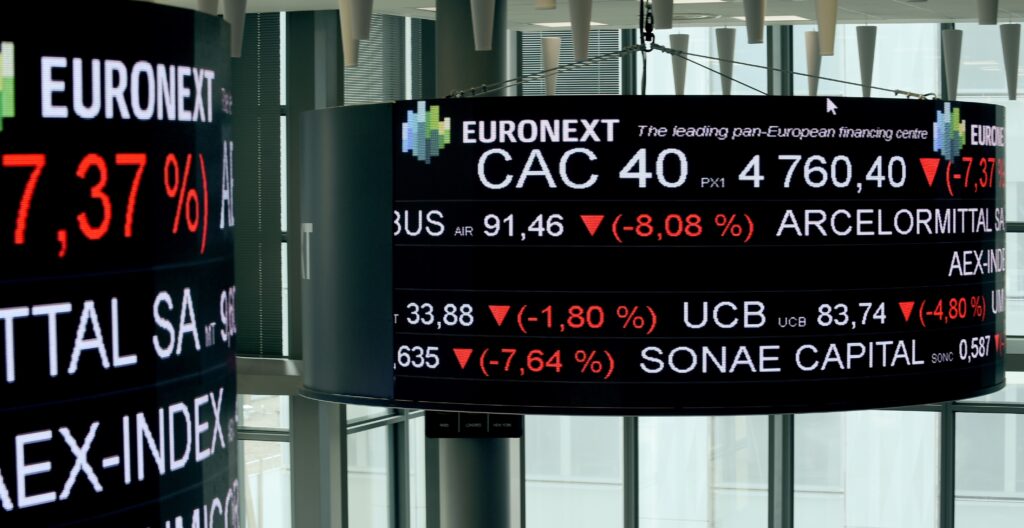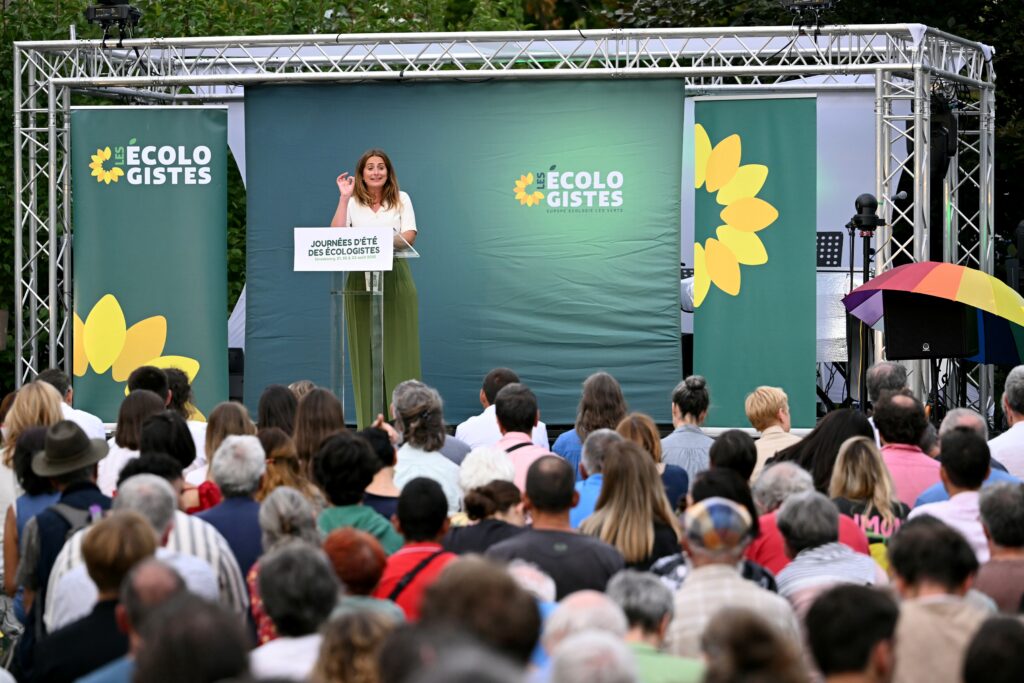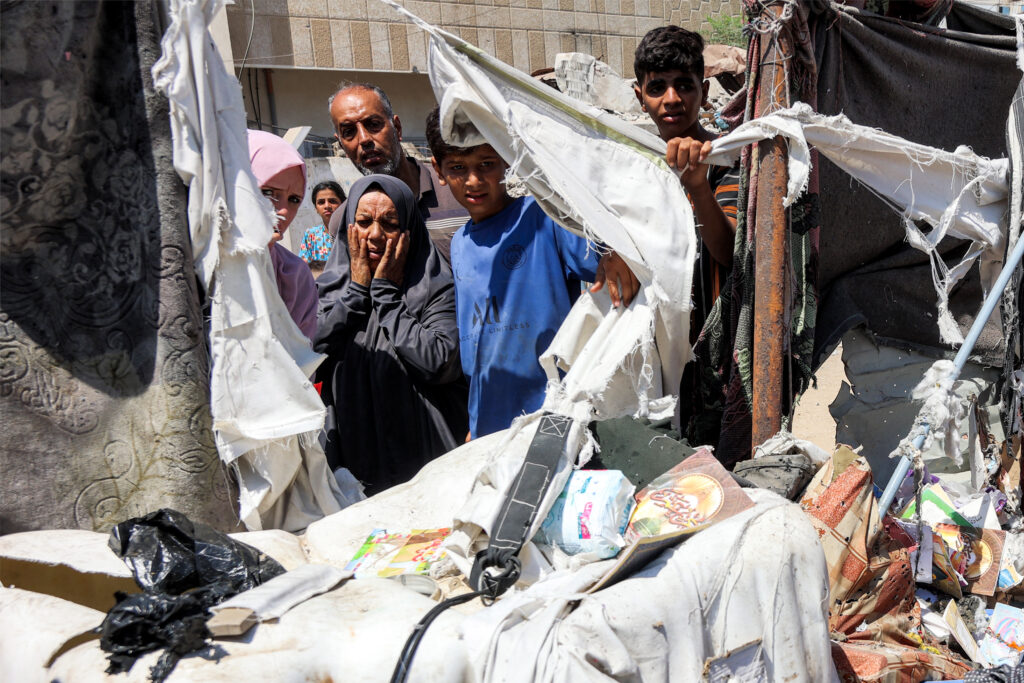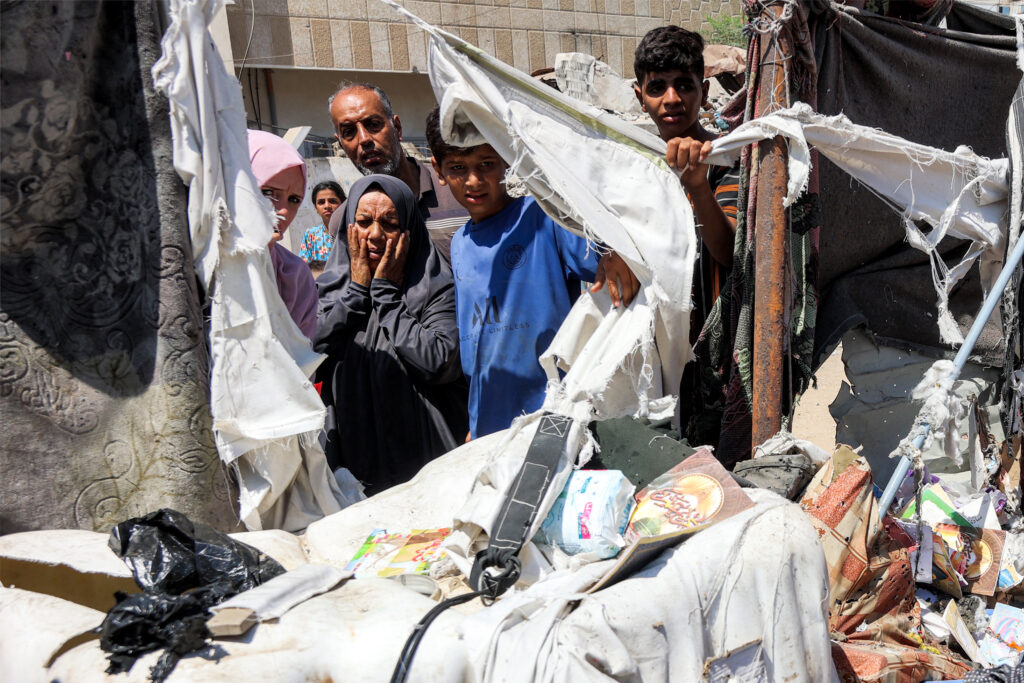Rubio eyes tough-security ally in Ecuador
US Secretary of State Marco Rubio on Thursday discussed bolstering cooperation on security and migration in violence-swept Ecuador, as he champions a shoot-first crackdown on the region’s criminal groups.Ecuador’s President Daniel Noboa, an emerging ally of US President Donald Trump, has deployed troops to combat violence that has transformed the country from one of Latin America’s safest to one of its most dangerous.Rubio was escorted into the tightly guarded, centuries-old palace in Quito’s old city as a pianist played “America the Beautiful.””We value your effort and also your interest in our country and everything we’re doing here, actually, to eliminate any terrorist threat,” Noboa told Rubio as they met.The efforts will help advance “the protection of the United States and our way of life,” Noboa said.The visit comes two days after US forces said they blew up an alleged drug-running boat from a gang tied to Venezuela’s leftist government, in an operation President Donald Trump said killed 11 people.In Noboa, a businessman who has consolidated power since his surprise 2023 victory, Rubio could find a new ally in his campaign to strengthen security-minded right-wing leaders across Latin America.The 37-year-old president was also born in Miami — the hometown of Rubio, a Cuban-American and vociferous critic of Latin America’s leftists.The Trump administration has sounded out Ecuador, which has stepped up cooperation to curb migration, as a new destination to ship people from other countries — part of a mass deportation drive.Noboa could follow in the steps of El Salvador’s Nayib Bukele, another young US-educated president, whose iron-fisted clampdown on crime has drawn complaints from rights groups but made him popular at home and a darling of the Trump administration.Rubio, speaking Wednesday in Mexico on the first stop of his two-country tour, vowed no mercy against criminal groups.He warned of more US attacks like the one in the Caribbean, a dramatic escalation by the United States after decades of routine policing work to seize drugs.Rubio said that such interdictions did not work as they were not costly enough to gangs.The United States “blew it up and it’ll happen again,” Rubio told a news conference Wednesday.AFP has not been able to verify independently the details of the attack presented by the United States.Venezuela’s Interior Minister Diosdado Cabello accused the United States of committing extrajudicial killings, saying “they murdered 11 people without due process.”- Ecuador eyes agreements -Ecuador’s Interior Minister John Reimberg said Wednesday he expected “many more agreements” with the United States on combatting violence.Located between Colombia and Peru, the world’s largest producers of cocaine, Ecuador is the departure point for 70 percent of the world’s supply of the drug, nearly half of which goes to the United States, according to official data. For years, the United States operated a military base at the Pacific port of Manta, and the Drug Enforcement Administration had a sizeable footprint in the country. The base was closed in 2009, after leftist then-president Rafael Correa refused to renew the lease. Noboa has moved to allow US forces to return, although a US official downplayed the possibility of any imminent return of a military presence.The official said that Rubio will also present Ecuador as a cautionary tale after it amassed billions of dollars in debt to China.The United States sees China as its top global adversary and has moved aggressively to combat its influence, but Beijing has made headway as the United States under Trump retreats from global aid.
Xi promet à Kim une amitié “immuable” entre Chine et Corée du Nord
Xi Jinping a affirmé jeudi, lors d’une rencontre avec le dirigeant nord-coréen Kim Jong Un à Pékin, que la détermination chinoise à renforcer les relations avec Pyongyang restera “immuable, quelle que soit” la situation internationale.La Corée du Nord, sous le coup de sanctions imposées par l’ONU en raison de son programme nucléaire, est également critiquée par les alliés de Kiev car elle fournit des armes et des troupes pour soutenir l’assaut russe contre l’Ukraine.MM. Xi et Kim ont assisté mercredi à Pékin à un grand défilé militaire pour commémorer la fin de la Seconde Guerre mondiale, en compagnie notamment du président russe Vladimir Poutine. C’est la première fois que les trois hommes se retrouvaient ensemble.”Le Parti (communiste) et le gouvernement chinois attachent une grande importance à l’amitié traditionnelle” bilatérale “et sont disposés à maintenir, consolider et développer les relations”, a souligné jeudi Xi Jinping à Kim Jong Un, selon l’agence de presse officielle Chine nouvelle.”Cette position restera immuable, quelle que soit l’évolution de la situation internationale”, a-t-il ajouté lors de leur rencontre au Palais du Peuple, imposant bâtiment officiel situé au bord de la célèbre place Tiananmen.Kim Jong Un est arrivé mardi à Pékin pour une rare visite hors de son pays. Il s’agit de son premier déplacement en Chine depuis 2019 et de son premier séjour à l’étranger depuis 2023.- Départ -Le train blindé du dirigeant nord-coréen a été vu quittant la capitale chinoise jeudi soir, peu après la fin de l’entretien avec Xi Jinping, a rapporté l’agence de presse sud-coréenne Yonhap.Malgré des périodes d’agacement de Pékin face à la course à l’armement atomique et balistique de Pyongyang, les deux pays entretiennent d’étroites relations depuis leur front commun durant la Guerre de Corée (1950-1953). Le soutien diplomatique, politique et économique de la Chine est crucial pour la Corée du Nord.”La Chine est disposée à renforcer les échanges de haut niveau et sa communication stratégique” avec sa voisine, ainsi qu’à “intensifier les interactions à tous les niveaux”, a ainsi déclaré jeudi Xi Jinping à son hôte.Le président chinois a également déclaré que les deux pays devaient renforcer leur coordination dans les affaires internationales et “sauvegarder leurs intérêts communs”.Xi Jinping a par ailleurs invité son hôte à prendre le thé et à dîner, a précisé Chine nouvelle.Kim Jong Un s’est entretenu mercredi avec Vladimir Poutine, qui l’a remercié pour l’envoi de troupes nord-coréennes face aux soldats ukrainiens.”Les relations entre nos pays sont devenues particulièrement amicales, basées sur la confiance entre alliés”, a affirmé à cette occasion le président russe.- “Irresponsables” -La rencontre entre les dirigeants chinois, russe et nord-coréen durant le défilé militaire a piqué au vif le président américain Donald Trump.”Veuillez transmettre mes salutations les plus chaleureuses à Vladimir Poutine et Kim Jong Un pendant que vous conspirez contre les Etats-Unis d’Amérique”, a-t-il écrit sur son réseau Truth Social à l’adresse de Xi Jinping.”La Chine développe ses relations diplomatiques avec tous les pays, sans jamais cibler un tiers”, lui a répondu jeudi un porte-parole du ministère chinois des Affaires étrangères, Guo Jiakun, lors d’un point-presse régulier.M. Guo a aussi qualifié d'”irresponsables” les propos de la cheffe de la diplomatie européenne, Kaja Kallas, qui a décrit cette rencontre entre les trois dirigeants comme un “défi direct au système international basé sur des règles”.Les propos de la responsable européenne “sont empreints de préjugés idéologiques, dépourvus des connaissances historiques de base et incitent ouvertement à la confrontation”, a-t-il souligné.
Les Bourses européennes terminent sans direction commune
Les Bourses européennes ont terminé sans grand entrain jeudi, les investisseurs patientant avant la parution vendredi de chiffres sur l’emploi américain qui devraient permettre d’affiner les anticipations de la trajectoire des taux de la Réserve fédérale américaine (Fed).La Bourse de Francfort a terminé en hausse de 0,74%, Londres a pris 0,42% et Milan a grimpé de 0,49%. Seule Paris a reculé, cédant 0,27%.
Les Ecologistes rassemblent la gauche sans LFI pour préparer l’après Bayrou
Les Ecologistes ont rassemblé une partie de la gauche jeudi après-midi, pour mutualiser leurs propositions en vue d’un gouvernement de gauche pour remplacer François Bayrou, a indiqué la cheffe du parti Marine Tondelier lors d’une conférence de presse.L’écologiste avait invité tous les partenaires de gauche à se réunir pour préparer l’après Bayrou, mais La France insoumise a immédiatement décliné l’invitation. Le PS, le PCF, Générations, les ex-insoumis de l’Après et Debout, le parti de François Ruffin, étaient présents à cette réunion, a appris l’AFP. “Il est important que tout le monde ait reçu le message que oui, la gauche et les écologistes se préparent à gouverner”, a déclaré Mme Tondelier lors d’une conférence de presse des Ecologistes pour présenter leur “plan de sortie de crise” et leurs propositions de budget. Le PS avait déjà présenté samedi dernier son projet de budget alternatif.Cette réunion avait pour objectif de “sortir des propositions communes”, a précisé Mme Tondelier.”Un alignement sur le fond et d’un point de vue stratégique” a été constaté, a précisé une source socialiste à l’issue de la rencontre. Cela “ne remplace absolument pas le programme du Nouveau Front Populaire”, a assuré Mme Tondelier, “mais dans un contexte spécifique qui est celui actuel, on a des propositions spécifiques à faire”.”Quand on vous dit que 42% des personnes qui gagnent le smic ou moins dans ce pays, se privent d’un repas par jour, on ne va pas leur expliquer qu’on leur souhaite bon courage et qu’on va attendre tous ensemble le grand soir”, a-t-elle martelé.Comme le PS, les Ecologistes se disent prêts à renoncer au 49.3 et à faire des compromis pour faire passer leurs mesures.S’ils partagent la préoccupation de François Bayrou quant à la dette, ils proposent de réduire plus progressivement le déficit (-11,7 milliards en 2026 et -13 milliards en 2027), pour le ramener à 3,7% en 2030.Ils proposent 28,5 milliards de recettes fiscales (notamment via la taxe Zucman sur les très hauts patrimoines, la contribution exceptionnelle sur les grandes entreprises).Côté dépenses, ils proposent d’investir notamment dans la Défense (+6,2 mds), la bifurcation écologique (+9,1 mds), les services publics (+6,1 mds, avec une hausse des salaires des professeurs de 15% sur 5 ans), la protection sociale (+6,3 mds, avec l’abrogation de la mesure d’âge de départ à la retraite à 64 ans).Ils prévoient aussi 16,6 milliards d’économies, axés notamment sur les exonérations de cotisations sociales pour les entreprises et les niches fiscales néfastes au climat.
La Défense civile à Gaza annonce 44 morts dans de nouveaux bombardements israéliens
La Défense civile dans la bande de Gaza a annoncé la mort de 44 Palestiniens jeudi dans de nouveaux bombardements israéliens, dont 25 à Gaza-ville, menacée d’une offensive d’envergure.Près de deux ans après le début de la guerre, déclenchée par une attaque sans précédent du mouvement islamiste palestinien Hamas contre Israël le 7 octobre 2023, l’armée israélienne a intensifié les bombardements sur Gaza-ville et mené des opérations en périphérie ces derniers jours.Des images de l’AFP montrent dans le quartier de Tel al-Hawa à Gaza-ville, des Palestiniens récupérant des affaires éparpillées près de tentes de déplacés endommagées après une frappe ayant fait cinq morts, dont trois enfants, selon le porte-parole de la Défense civile, Mahmoud Bassal.”Mes enfants et moi dormions dans la tente quand nous avons entendu le bruit d’une explosion. Des éclats nous sont tombés dessus, et mes quatre enfants ont commencé à crier”, a raconté Israa al-Basous, qui a vu la tente voisine s’embraser.À l’hôpital Al-Chifa de Gaza-ville, des corps enveloppés dans des linceuls blancs sont placés au sol à la morgue. Une femme en deuil caresse doucement la tête de son fils mort, allongé sur un brancard à l’extérieur.”Pourquoi m’as tu quitté mon fils? Pourquoi? Pourquoi?”, sanglote-t-elle.- “C’était terrifiant” -Quasiment tous les jours, la Défense civile rapporte des dizaines de morts dans les opérations israéliennes dans le petit territoire en proie à la famine selon l’ONU et où l’armée assiège depuis 23 mois les quelque deux millions d’habitants. Compte tenu des restrictions imposées aux médias à Gaza et des difficultés d’accès sur le terrain, l’AFP n’est pas en mesure de vérifier de manière indépendante les bilans de la Défense civile et les informations des différentes parties.Dans le secteur de Nousseirat (centre), M. Bassal a affirmé qu’une frappe israélienne avait tué sept personnes, dont trois enfants.Dans une tente touchée par le raid, un homme âgé et sa petite-fille inspectent les dégâts. Des morceaux de tissu pendent des piquets et des effets personnels détruits jonchent le sol.”Vers 04H00 du matin, ils ont bombardé la zone. Mon neveu, sa femme, et leurs deux enfants ont été tués. La tente entière a été détruite, avec tous ceux qui s’y trouvaient. C’était terrifiant”, a raconté Youssef Souleiman.”Ils nous affament, nous privent d’eau, nous déplacent et tuent nos enfants, tout cela sous les yeux du monde”, s’est exclamée Oum Nabil Al-Aish, une Gazaouie qui a elle aussi perdu des proches.Contactée par l’AFP au sujet des frappes meurtrières, l’armée israélienne a dit qu’elle examinerait les informations une fois des coordonnées précises lui auront été fournies.L’armée israélienne, qui contrôle aujourd’hui environ 75% de la bande de Gaza, dit préparer une offensive pour s’emparer de la ville située dans le nord, qu’elle présente comme le dernier grand bastion du Hamas dans le territoire palestinien.- Manifestations à Jérusalem -Selon les estimations de l’ONU, près d’un million de personnes vivent dans et autour de Gaza-ville. Des milliers de Palestiniens ont fui la ville ces dernières semaines selon des témoins.Mercredi, un haut responsable militaire a déclaré qu’Israël s’attendait à ce “qu’un million” de personnes fuient vers le sud. Et jeudi, un porte-parole de l’armée, a accusé le Hamas de menacer les civils pour “tenter de les empêcher de quitter la ville”. Le gouvernement de Benjamin Netanyahu a dit vouloir détruire le Hamas, qui a pris le pouvoir dans la bande de Gaza en 2007, et prendre le contrôle sécuritaire du territoire situé à la frontière sud d’Israël.Mais après près de 23 mois de guerre, il est confronté à une très forte pression, en Israël comme à l’étranger, pour faire taire les armes et obtenir la libération des otages enlevés durant l’attaque du 7-Octobre et retenus à Gaza.La veille, plusieurs manifestations ont eu lieu à Jérusalem pour exiger du gouvernement Netanyahu un accord de cessez-le-feu à Gaza garantissant la libération des otages. Un nouveau rassemblement est attendu en soirée à Jérusalem.L’attaque du 7-Octobre a entraîné la mort de 1.219 personnes côté israélien, en majorité des civils, selon un décompte de l’AFP basé sur des données officielles. Sur les 251 personnes enlevées ce jour-là, 47 restent otages à Gaza, dont 25 ont été déclarées mortes par l’armée israélienne.La campagne de représailles israélienne a fait au moins 64.231 morts à Gaza, en majorité des civils, selon le ministère de la Santé du Hamas, dont les chiffres sont jugés fiables par l’ONU.
La Défense civile à Gaza annonce 44 morts dans de nouveaux bombardements israéliens
La Défense civile dans la bande de Gaza a annoncé la mort de 44 Palestiniens jeudi dans de nouveaux bombardements israéliens, dont 25 à Gaza-ville, menacée d’une offensive d’envergure.Près de deux ans après le début de la guerre, déclenchée par une attaque sans précédent du mouvement islamiste palestinien Hamas contre Israël le 7 octobre 2023, l’armée israélienne a intensifié les bombardements sur Gaza-ville et mené des opérations en périphérie ces derniers jours.Des images de l’AFP montrent dans le quartier de Tel al-Hawa à Gaza-ville, des Palestiniens récupérant des affaires éparpillées près de tentes de déplacés endommagées après une frappe ayant fait cinq morts, dont trois enfants, selon le porte-parole de la Défense civile, Mahmoud Bassal.”Mes enfants et moi dormions dans la tente quand nous avons entendu le bruit d’une explosion. Des éclats nous sont tombés dessus, et mes quatre enfants ont commencé à crier”, a raconté Israa al-Basous, qui a vu la tente voisine s’embraser.À l’hôpital Al-Chifa de Gaza-ville, des corps enveloppés dans des linceuls blancs sont placés au sol à la morgue. Une femme en deuil caresse doucement la tête de son fils mort, allongé sur un brancard à l’extérieur.”Pourquoi m’as tu quitté mon fils? Pourquoi? Pourquoi?”, sanglote-t-elle.- “C’était terrifiant” -Quasiment tous les jours, la Défense civile rapporte des dizaines de morts dans les opérations israéliennes dans le petit territoire en proie à la famine selon l’ONU et où l’armée assiège depuis 23 mois les quelque deux millions d’habitants. Compte tenu des restrictions imposées aux médias à Gaza et des difficultés d’accès sur le terrain, l’AFP n’est pas en mesure de vérifier de manière indépendante les bilans de la Défense civile et les informations des différentes parties.Dans le secteur de Nousseirat (centre), M. Bassal a affirmé qu’une frappe israélienne avait tué sept personnes, dont trois enfants.Dans une tente touchée par le raid, un homme âgé et sa petite-fille inspectent les dégâts. Des morceaux de tissu pendent des piquets et des effets personnels détruits jonchent le sol.”Vers 04H00 du matin, ils ont bombardé la zone. Mon neveu, sa femme, et leurs deux enfants ont été tués. La tente entière a été détruite, avec tous ceux qui s’y trouvaient. C’était terrifiant”, a raconté Youssef Souleiman.”Ils nous affament, nous privent d’eau, nous déplacent et tuent nos enfants, tout cela sous les yeux du monde”, s’est exclamée Oum Nabil Al-Aish, une Gazaouie qui a elle aussi perdu des proches.Contactée par l’AFP au sujet des frappes meurtrières, l’armée israélienne a dit qu’elle examinerait les informations une fois des coordonnées précises lui auront été fournies.L’armée israélienne, qui contrôle aujourd’hui environ 75% de la bande de Gaza, dit préparer une offensive pour s’emparer de la ville située dans le nord, qu’elle présente comme le dernier grand bastion du Hamas dans le territoire palestinien.- Manifestations à Jérusalem -Selon les estimations de l’ONU, près d’un million de personnes vivent dans et autour de Gaza-ville. Des milliers de Palestiniens ont fui la ville ces dernières semaines selon des témoins.Mercredi, un haut responsable militaire a déclaré qu’Israël s’attendait à ce “qu’un million” de personnes fuient vers le sud. Et jeudi, un porte-parole de l’armée, a accusé le Hamas de menacer les civils pour “tenter de les empêcher de quitter la ville”. Le gouvernement de Benjamin Netanyahu a dit vouloir détruire le Hamas, qui a pris le pouvoir dans la bande de Gaza en 2007, et prendre le contrôle sécuritaire du territoire situé à la frontière sud d’Israël.Mais après près de 23 mois de guerre, il est confronté à une très forte pression, en Israël comme à l’étranger, pour faire taire les armes et obtenir la libération des otages enlevés durant l’attaque du 7-Octobre et retenus à Gaza.La veille, plusieurs manifestations ont eu lieu à Jérusalem pour exiger du gouvernement Netanyahu un accord de cessez-le-feu à Gaza garantissant la libération des otages. Un nouveau rassemblement est attendu en soirée à Jérusalem.L’attaque du 7-Octobre a entraîné la mort de 1.219 personnes côté israélien, en majorité des civils, selon un décompte de l’AFP basé sur des données officielles. Sur les 251 personnes enlevées ce jour-là, 47 restent otages à Gaza, dont 25 ont été déclarées mortes par l’armée israélienne.La campagne de représailles israélienne a fait au moins 64.231 morts à Gaza, en majorité des civils, selon le ministère de la Santé du Hamas, dont les chiffres sont jugés fiables par l’ONU.
Garanties de sécurité à l’Ukraine : 26 pays se sont engagés à être présents “sur le sol, en mer ou dans les airs” (Macron)
Vingt-six pays, essentiellement européens, se sont “engagés” à participer à une “force de réassurance” dans le cadre d’un futur cessez-le-feu russo-ukrainien, en déployant des troupes en Ukraine ou en étant “présents sur le sol, en mer ou dans les airs”, a annoncé jeudi Emmanuel Macron.”Cette force n’a pas pour volonté ou pour objectif de mener quelque guerre contre la Russie”, a dit le président français devant la presse à Paris après une réunion de la “Coalition des volontaires”, ces Etats essentiellement européens soutenant l’Ukraine et après un contact téléphonique entre les principaux alliés européens et Donald Trump.Il a assuré que le “soutien américain” à ces “garanties de sécurité” pour Kiev serait finalisé “dans les prochains jours” et que les Américains avaient “été très clairs” sur leur participation. “Il n’y a pas de doute sur ce sujet”, a-t-il martelé. Le président ukrainien Volodymyr Zelensky a à ce propos insisté : “Nous comptons sur le +backstop+ (+filet de sécurité+) des Etats-Unis”. Après que vingt-six pays ont donc désormais “formalisé très précisément leur contribution”, M. Macron a refusé de “révéler le détail de notre organisation à la Russie”.L’Allemagne, l’Italie et la Pologne “font partie des 26 contributeurs qui ont défini des soutiens”, a-t-il toutefois dit, “soit pour la régénération de l’armée ukrainienne, soit pour la sécurité sur son sol, dans ses airs, en mer”. Le chef de l’Etat français a rappelé qu'”en février 2024, dans cette même salle, (…) nous étions deux à dire que peut-être on serait prêts un jour à mettre des troupes sur le terrain. Il y avait la Lituanie et la France. Deux. Et je rappelle que l’atmosphère était assez négative”.Les garanties de sécurité “visent d’abord à ce que, dans la négociation, il n’y ait aucune limitation de format ou de capacité pour l’armée ukrainienne”, a-t-il rappelé. “C’est ce que nous défendons, ce que nous défendrons jusqu’au bout.”Emmanuel Macron a aussi assuré que les Européens prendraient de nouvelles sanctions “en lien avec les Etats-Unis” si Moscou continuait de refuser la paix. Il a précisé qu’il y aurait “des contacts à nouveau entre Américains et Russes”.

